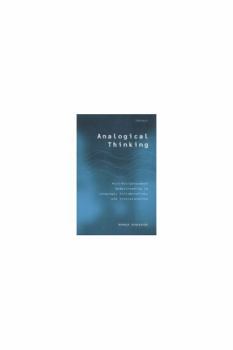Analogical Thinking: Post-Enlightenment Understanding in Language, Collaboration, and Interpretation
Analogical Thinking argues that sometime around the turn of the twentieth century, a new mode of comprehension arose, supplementing received Enlightenment ideas concerning the nature of understanding and explanation. Focusing on the innovations of structural linguistics and its poststructural legacy, the individualism of Enlightenment knowledge and the collaborations of post-Enlightenment information, and practices of reading and interpretation across...
Format:Hardcover
Language:English
ISBN:0472110888
ISBN13:9780472110889
Release Date:January 2001
Publisher:University of Michigan Press
Length:240 Pages
Weight:1.16 lbs.
Dimensions:1.1" x 6.4" x 9.3"
Customer Reviews
0 rating





